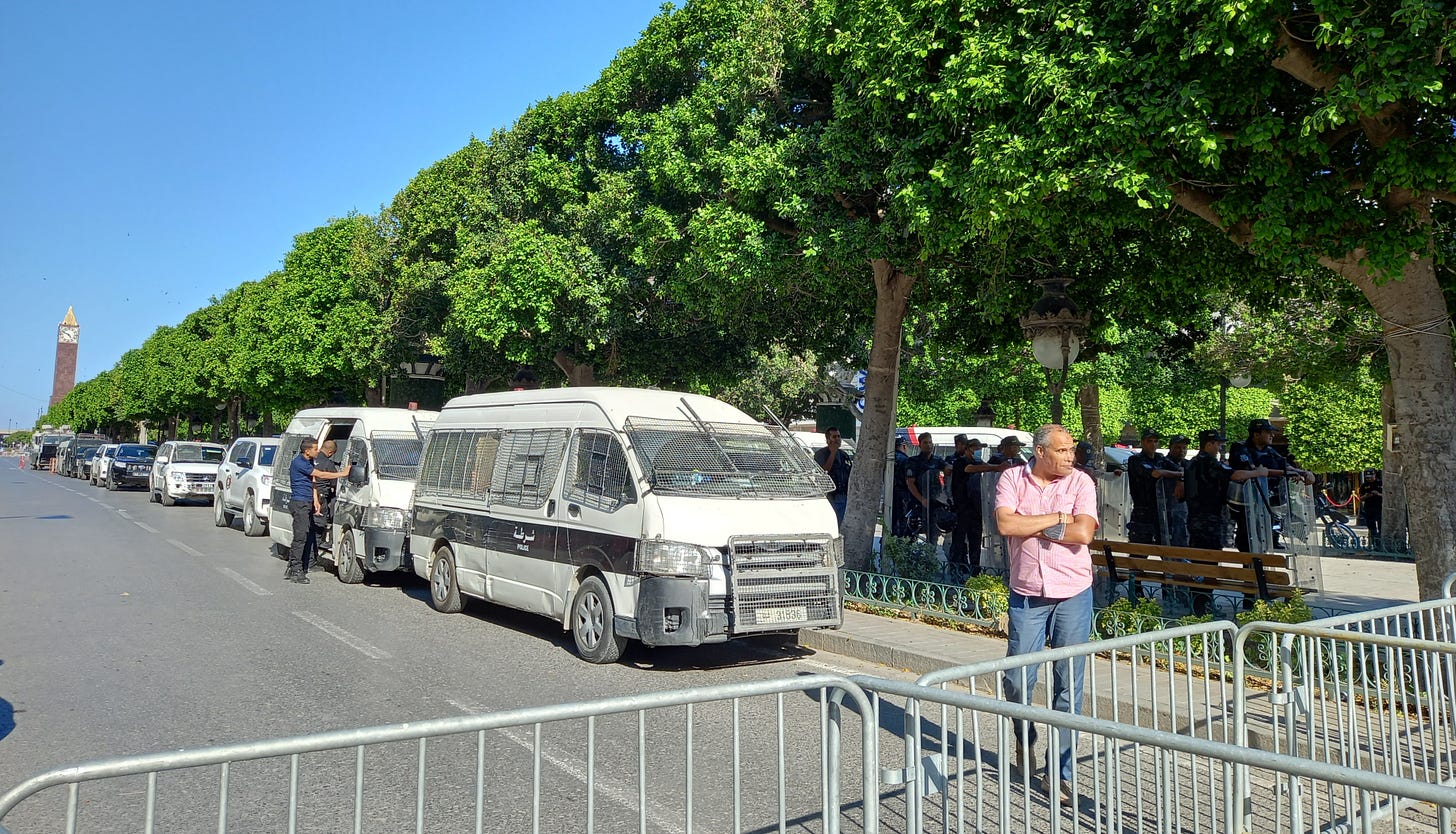Introduction to the School of Tunisia
Welcome to the School of Tunisia, a Substack on which I am chronicling the seven months of arbitrary detainment I endured in Tunisia in 2024.

When I was first arrested in the port city of Sfax in Tunisia in the middle of an interview in late May, I never expected the process that followed. It would keep me preoccupied and stuck, arbitrarily detained in Tunisia, for almost seven months, cut off from everything.
I was but an early-career freelancer with few publications to my name, working for a few hundred dollars per commission and trying to simultaneously build my portfolio and eat. I learned a lot during the seven months that followed - about Tunisia and the world around it, about journalism and about myself. For better or for worse, I have left Tunisia broke, cynical and disillusioned. I also left with a full mental bucket of experiences that I am keen to share with the world, while eclipsing tedious pitching processes, questionable editorial agendas and the sad precariousness of a freelancer’s labor conditions.
It is in that context that the idea of telling my story through a Substack came to be. The School of Tunisia - a direct quote from an investigator with the National Guard’s First Central Unit of Investigations in Laouina who used the phrase sarcastically to refer to my interrogation - is the product of me and me alone. No editors and no funding - just me and my laptop.
Over the next weeks, I strive to publish a weekly episode of my story. They will be candid, exhaustive and true to reality, and I will be adding in evidence whenever relevant and possible. Everything I write is based on a systematic gathering and archiving of case-related documents, as well as day-by-day entries in a journal counting by now nearly 40,000 words.
If you want to pay for your subscription, that’s awesome - I thank you for your support. If you can’t or don’t want to, subscribe for free and you’ll be able to read the same content. I have a free room and three meals a day in my parents’ home, therapy to attend and a life I need to figure out what to do with, so money is of secondary importance for the moment. The disillusionment I’ve found with the industry has frankly left me questioning if making a living in journalism is a worthwhile path to pursue at all. But I digress…
As a reader of the School of Tunisia, you can primarily expect to be taken through the nitty-gritty everyday details of the persecution I was subjected to in Tunisia. You can also expect a mix of analysis and criticism of Tunisian and European politics and society, candid and unique descriptions of the practical aspects of the Tunisian security and judicial sectors, and my personal reflections on these things, in addition to the journalism industry, trauma and the tragedy of everyday life in Tunis when you feel like you’re drowning in an endless pool of surveillance and bureaucracy.
The purpose of this Substack is also to bring attention to the plight of migrants and refugees who are stuck under horrifying conditions in Tunisia, as a direct effect of the funding and politics of the European Union. It has been surreal to know during this entire process that the tax money I, my family and my friends as European citizens pay to our governments has funded and effected the detainment and persecution I’ve been subjected to.
Let my story also be the story of why you rarely ever hear the harrowing stories of EU-funded persecution of migrants and refugees in Tunisia. Because when we as journalists try to report on it, this is what we are faced with. And trust me, most of the abuse never makes it out of the olive field tent camps.
Who am I to write such things? Well, there are certainly smarter and more knowledgeable people out there than me. But I’ve written some articles in the media, I’ve co-directed and produced a feature documentary film about migration that (hopefully!) will be hitting film festivals soon, and I’ve even published peer-reviewed research about policing in Tunisia. So I would argue that I do have some qualifications, beyond just being the victim of political persecution. Anyway.
A lyric from one of my favorite Tunisian rappers, SAFFWIZZ, from the song Kharaman, felt increasingly real to me with each passing day of this process:
هوني تعلم عوم ولا موت غرقا
“Here, you learn to swim, or you die drowning.”
Episode #1 of my story can be read here and is a great place to start if you’re interested in more. The rest of the episodes have already come out and can be found here.



